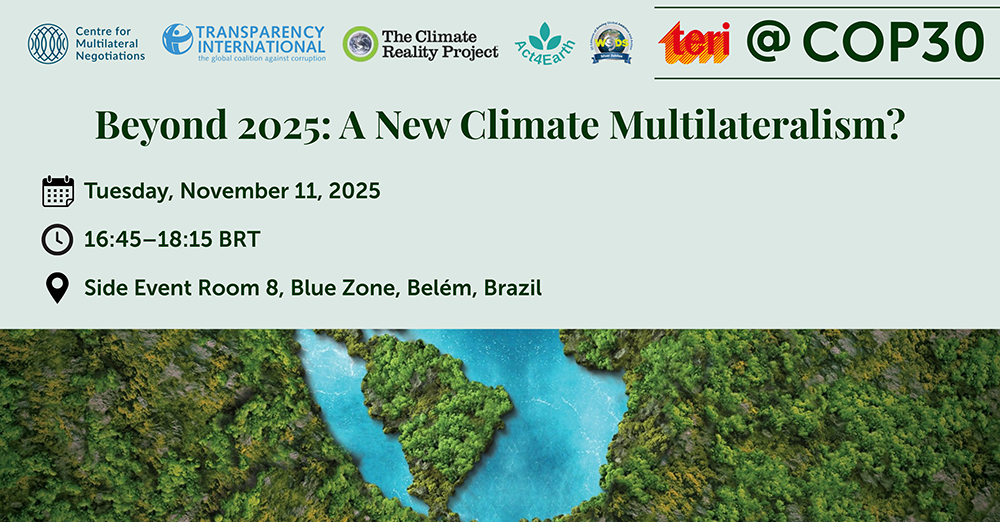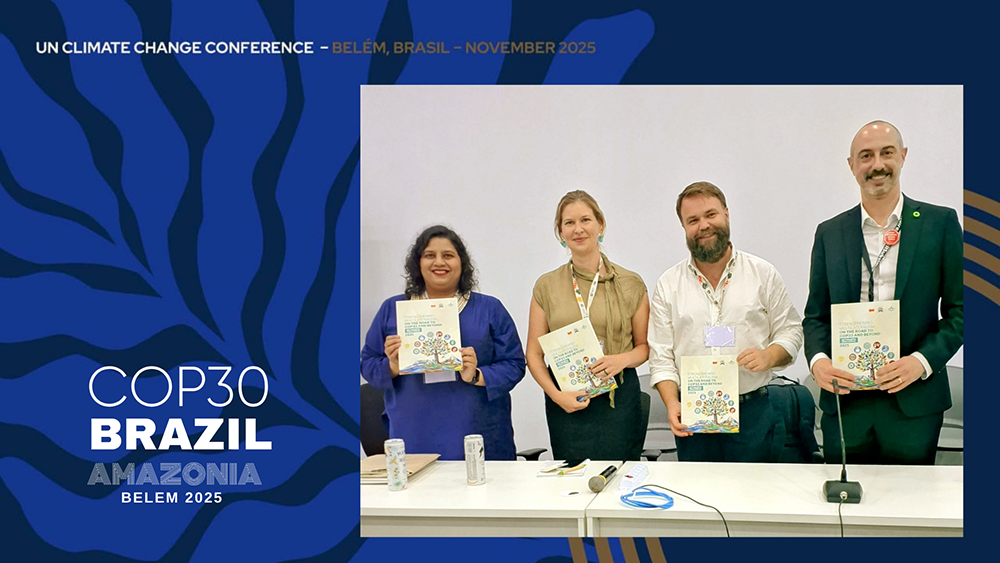Beyond 2025: A New Climate Multilateralism?

Context & Rationale
Over the past 70 years, multilateralism has been the foundation of global stability, ethics and collective progress. Yet, as the climate crisis deepens, this model faces unprecedented challenges — geopolitical fragmentation, eroding trust, and widening implementation gaps.
This COP30 side event will explore the question: “How can multilateralism deliver solutions for the climate crisis?” The discussion will bring together current thinking from multiple projects and organisations to help define a coherent roadmap for climate multilateral innovation for climate justice — one that restores trust, strengthens integrity, and connects international commitments with people’s realities.
Objectives
- Reflect on how climate multilateralism can evolve beyond 2025 to remain a driver of global stability and cooperation.
- Promote integrity, equity, transparency, and ethics as foundations of credible, principle-based climate governance.
- Bridge the gap between multilateral decisions and local action, ensuring outcomes resonate with real-world challenges.
- Examine frameworks and metrics to broaden the contributor base in fair and measurable ways.
- Launch TERI Act4Earth Brief titled, "Strengthening Multilateralism on the Road to COP33 and Beyond"
Session Format (90 minutes total)
- High-Level Opening (16 mins):
- Impulse by COP30 Presidency representative, including reporting back from Global Ethical Stocktake (8 mins)
- Impulse by UNFCCC Secretariat representative (8 mins)
- Panel Discussion (50 mins) and Q&A (20 mins), moderated by CEMUNE, and featuring contributions from each partner organisation:
- Centre for Multilateral Negotiation (CEMUNE): Framing the session around renewing trust in multilateralism and presenting ideas for a roadmap toward climate multilateral innovation beyond 2025.
- The Energy and Resources Institute (TERI): Exploring how to expand the scope of global climate governance to address multi-scalar issues, including global commons and operationalising CBDR-RC. Two knowledge documents under the WSDS-Act4Earth initiative will support this input.
- Transparency International (TI): Focusing on integrity, ethics, and transparency as essential pillars for effective and accountable climate governance.
- The Climate Reality Project (CRP): Highlighting how to leverage an evolving presidency role for strengthening multilateralism, emphasising the action agenda and presenting a framework that future presidencies could adopt to raise ambition and realise climate justice.
Expected Outcomes
- A shared understanding of how to reinvigorate trust, ethics and inclusivity in global cooperation and multilateralism. Action points Parties, COP Presidencies and the UNFCCC can take to address the gaps and achieve the required climate action.
- Summary of innovations for a more effective, equitable and action-oriented multilateral system, and a concrete way to implement it. Pathway for strengthened collaboration among civil society, research organisations, and State Parties to advance governance integrity and transparency in climate multilateralism.
Organizers
The Energy and Resources Institute (TERI) · Centre for Multilateral Negotiation (CEMUNE) · Transparency International (TI) · The Climate Reality Project (CRP)

